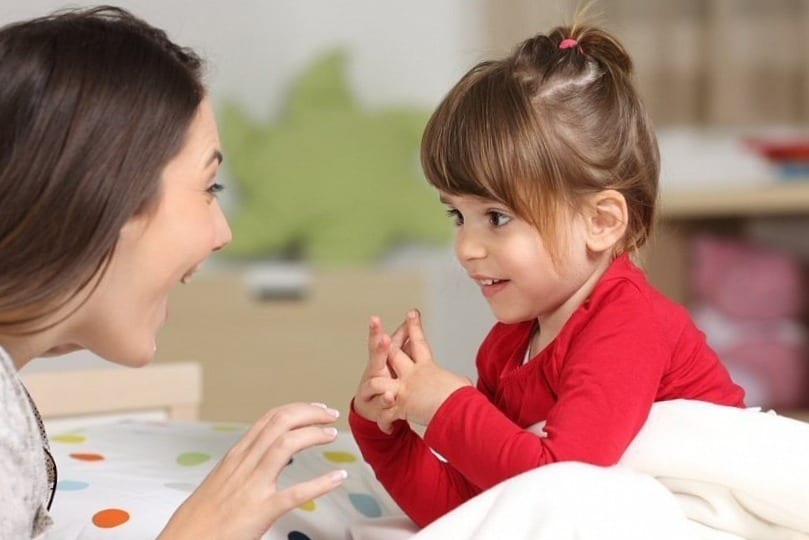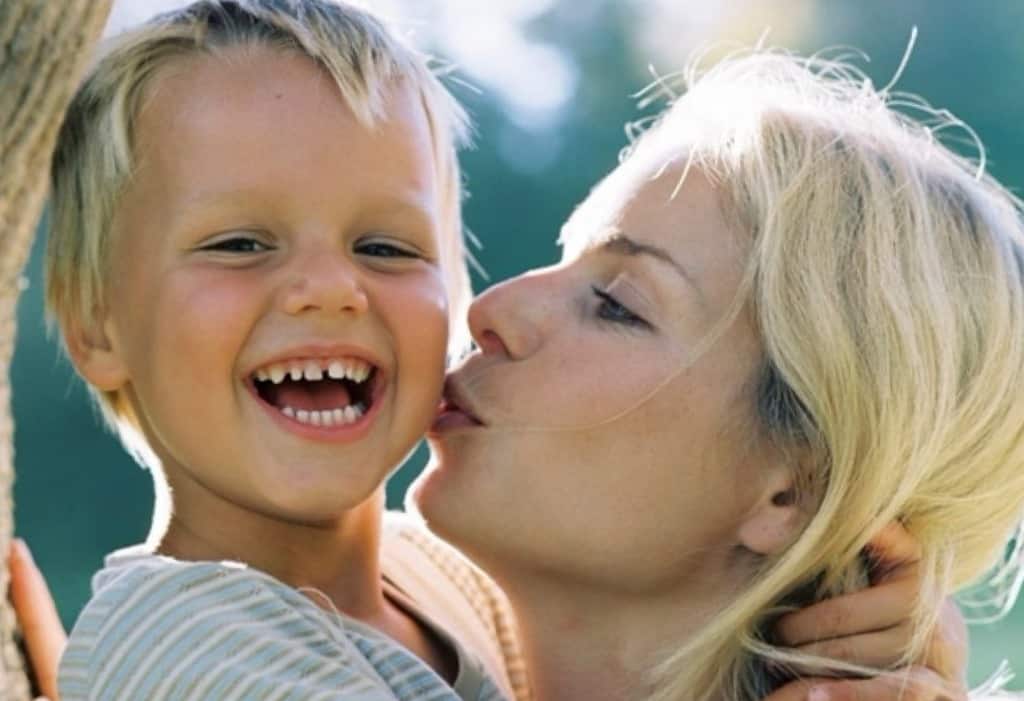
Does your child need praise? And how to praise correctly
Many people wonder: does a small child need praise? There is sometimes an opinion among parents that children should not be praised, as this leads to arrogance. They raise the child in strictness and do not praise the child even for the slightest achievements, thereby developing an inferiority complex in him. Such children are very eager to receive a kind word from their parents, thereby losing themselves in the midst of their desire to achieve favor.
Especially if they are praised by teachers, grandmothers or other people. They don’t understand why their parents treat them this way and distance themselves. And answering the question whether a child needs praise, we say it is necessary. Most parents still understand that children need to be praised, but not every dad and not every mother knows how to do it correctly.
Does a child need this?
Children need praise, if only because it helps them understand whether they are doing the right thing or not. For example, a mother tells a child: “You can’t do that, it’s wrong, ah-ah.” And the baby understands his mistake. Sometimes not immediately and one phrase is not enough. But praise helps the child understand how to correct his behavior. If, after painting the wallpaper, the mother swears, then the child wants to find a way out of this situation, he will apologize to the mother by drawing a picture on paper, or maybe even decide to help the mother clean up after herself. This is where praise will do its job.
After punishment, you need to explain to the child that you can’t do this, you need to do it differently. For example, do not throw toys around, but put them away in a box after playing. And when we send the child (or he goes) to do the cleaning, we use praise: “What a smart girl! Helps mom! He cleans it himself!” By encouraging the right actions, we guide the child on the right path.
There is a carrot and stick method in education. It is this method that helps the child navigate the norms of life in society. The child begins to understand what is bad and what is good. It is the approval of their parents that helps them in this.
What does praise affect?

- Praise helps a child in many situations in life. With the right praise:
- The baby understands what is possible and what is not;
- His self-esteem is formed. He understands that “I’m good at this.”
- The child feels his importance and, if he does not overdo it, he will be satisfied with himself only in the case.
- Self-motivation is formed.
You should not overdo it with praise; this can, indeed, lead to inflated self-esteem. This is why it is so important to be able to praise your child. But constant scolding and criticism also affects the child in the worst way. The child begins to think badly about himself, that he is a loser. And he doesn’t want to strive for anything. This is why it is so important to praise your child correctly.
How to praise a child correctly
First of all, there should be a different approach to each child. Some children relax after praise, others are motivated by it. But more often than not, praise acts as a motivational support. However, whatever the approach to the child, there are general criteria that determine the correct behavior of parents when they need to praise the baby.
- Praise/action ratio
Be sure to praise your child for a specific task, and most importantly for something real! For example, if we actively praise a child for starting to walk, then after 5 years this is no longer appropriate. The skill has strengthened. And if there are no problems, then praise here, at least, will look strange. At the same time, praise should be very emotional. Praise your child not because he is doing well. Because he drew a beautiful drawing. Not because he is generous, but because he shared the candy with a friend. The child must know what exactly he did correctly and understand exactly why he is being praised.
- What do you say and how
In addition to words, during praise, emotions, facial expressions, gestures, etc. also play an important role, which become part of the whole picture of correct approval of the baby’s actions. The same phrase can sound completely different. And the child is also influenced by the emotions that you put into praise.
One word will not be enough. “Okay,” said the mother when the baby brought her a new fake and continued reading her book. Yes, this is praise, the mother approved of the child’s actions. But she didn’t support his motivational part. A child may simply give up making fakes because he couldn’t surprise his loved ones.
It’s another matter if the child, for example, learned a new poem. “What a smart girl you are! “I’m so proud of you,” my mother exclaimed and added a kiss and a hug to her words. A happy baby will definitely want to receive such praise again and expect another achievement in the near future.
Emotions are a very important part of approval, as is tactile contact. When praising a child, use a hug and a smile. It is important for a child not only to hear that he is doing well, but also to feel his parents’ pride in him and to see happy eyes. It's much stronger than words.
The method with emotions is especially good if you want to teach your baby a certain skill. Add brightness to your praise, the child will definitely want to receive it again.
- Praise your child not only for the result, but for the process itself!
Let's take, for example, homework in kindergarten or school. Does a small child need praise for such achievements? After all, he can do it wrong.
Of course, a child may make mistakes, but that's normal. Not everyone always succeeds in everything at once. And if the kid works hard on a task, then he definitely needs to be praised for his efforts. Not only the result is important, but also the process to achieve it, but only if the child is really trying to figure it out and is not in the clouds.
Not every adult is able to achieve the best result, and even more so, not every child is suitable for the role of an excellent student. If a child is praised only for what he has already done, he may stop loving the process and give up what he was so good at.
And for some children it is very difficult to achieve the final result. And without support, he becomes deflated and abandons what he started halfway.
How to choose the right words?
Praise is divided into two directions: “You”, “I”. In the first case, it means “You are so smart!”, “You did very well!”. Secondly: “I’m so proud of you!”, “I’m pleasantly surprised!”, “I’m so happy for you!”
When mom or dad praise through “You,” the child perceives it quite well (“I did well,” “I did well”). This is, of course, nice. But praise through the “I” carries a greater emotional outburst, and, consequently, greater value for the child.
But here it is necessary to use each form appropriately. For example, when you use the “You” form, fueling it with emotions, the child perceives this as something he did well, and the parents see it, they appreciate it. If the “I” form is used, then you need to understand that the phrase “I’m glad you put your toys away” will sound better than “You are such a helper.” The first phrase in this form sounds more specific. And the child feels respect in these words.
But you can use any form in education. Moreover, each family has its own characteristics of praise. Some people gather at the table every Friday and sum up the week, praising the child again, reminding him of his exploits. Others use kind words. All this can be used, the main thing is that children feel feedback for their actions. This helps the child develop and become happier.
How often and for what should you praise your child?

It is better to praise a child for a process not after he has finished, but when he is in the middle of doing it. Those. if you saw a child doing something very hard and well. Encourage him “here and now.” The effect of praise will only increase.
Praise also depends on the age of the baby. Toddlers (preschoolers) need any kind of praise to make them want to develop even more. But with older children it is more difficult, since you need to take into account some features.
- Praise the student for creativity and new approaches to solving a problem. This will help and motivate him to look for ways to solve problems next time. Praise here should be like an impetus for further action.
- Most often, children are praised in a certain way, using certain phrases:
Good girl! You are the most beautiful, smartest, most talented girl in the world. You are the best at making appliqués (singing, dancing).
And it seems like wonderful praise, but there is some danger in such a formulation, which consists in the fact that the personal quality of the child is being assessed, and not his action. A child may do something very well today, but poorly tomorrow. And it will be difficult to explain why he is not the best today. Children quickly get used to the phrase “You are the best” and simply expect it from their parents as something obligatory. And if you don’t praise him like that again, the child may be offended.
- Children get used to this formulation, and such phrases already sound like a standard to them. That is, children get used to praise and expect it as a reaction from their parents. What if you don't praise? How will he react? He'll be offended. After all, before this he was praised all the time.
Why wrong praise is harmful

- Getting used to praise
By encouraging our baby and approving of his actions constantly, we give the child a guideline that he is the best and can do anything. The child constantly waits for the parent's reaction and their approval. Moreover, this also spreads to other adults. The difficulty is that when a child becomes an adult, he may still depend on the approval of others and praise. The danger is that he may become dependent on the opinions of other people. - Losing interest
When a child constantly receives praise, he no longer tries to do anything for the sake of the result. He does this for the sake of his parents’ “well done.” And he will show his best qualities only for the sake of good words, and not because he wants to. This will definitely leave a mark on his future. - Manipulating with praise
When we praise a child with the words “well done”, “good”, we provide him with significant support. Thus, we “reinforce the action.” Some people use a method called “praise manipulation.” The child is constantly praised for certain behavior, thereby imposing his will on him. The correctness of his actions is cemented in the child’s consciousness. And this seems to be an effective method, but it is not reasonable for the child himself.
The unreasonableness of the method is that the child can be scolded for running around, but praised for calm behavior. Most often this is what happens. But the problem is that the child accumulates a large amount of energy and it is natural for him to want to frolic. But because of the punishments of mom and dad, he suffers painfully and sits quietly, just to get approval. At the same time, thoughts about why such positive actions cause disapproval from parents hide and accumulate in his head. Contradictions begin to awaken in him, and this can harm the psyche.
- Not happy anymore.
Some parents may be quick to praise their baby. Every step a child takes should not be praised. Since, in this way, the child is focused on success. After all, the baby needs space to independently rejoice in his successes. Therefore, do not be surprised if instead of the question “Did I do it well?”, you hear “Am I great?”
- Motivation disappears
If a child is constantly praised, he will have problems with motivation in the future. It is better to praise for effort than for the fact that everything works out. Today everything will work out, tomorrow it won’t. Children relax when they are told that they do something better than others.
15 phrases for praising a child
- You're on the right track!
- Well done for figuring it out!
- I am proud of you!
- Every day you get better and better!
- You did so much today!
- Even better than before!
- Teach me to do the same!
- I knew you could do it!
- I'm proud that you succeeded!
- I couldn't have done better myself!
- You did it very well!
- You are so smart that you managed to do this!
- I had no doubt that you could do it!
- Well done for doing it yourself!
- You can be proud of yourself!

- Praise your child for specific actions.
Remember that you need to pay attention to the action, not the person. Add to the word “You’re great!”, a definition of why he’s great. The child must hear what exactly he is being praised for.
- Praise emotionally, adding gestures and facial expressions.
Sincere joy is accompanied by gestures and facial expressions. Smile, hug your child, let him hear not only the words, but also see the joy and pride in your actions.
- Don't compare with others
Many parents don’t even notice how they compare their child with others. This is a bad habit in raising children, and you need to get rid of it. You should never compare your baby with other children, especially focusing on the things he does better than others. This is how the child develops a sense of superiority. And if praise comes only from his parents, in the future it will be difficult for him to accept the fact that others do not consider him so great.
- Don't criticize other children
Don't put your children above others, especially in front of everyone. The child will always try to do everything better than the one to whom he was praised. At the same time, he will not blame himself for failures, but precisely this “rival”.
- Don't compare with yourself
- Don't mix criticism and praise.
There is no need to say after bragging that something could have been done better.
- Don't expect perfection. Nobody is perfect. And the child certainly won’t be able to do everything completely as you wanted.
- Praise, but in moderation. Excessive praise can cause conflicting emotions in a child
For a child to be happy, he needs to be praised. But you need to choose the right words, not over-praise and restrain your pressure. In any case, praise with the right intonation will lift the child’s mood and motivate him to new achievements.